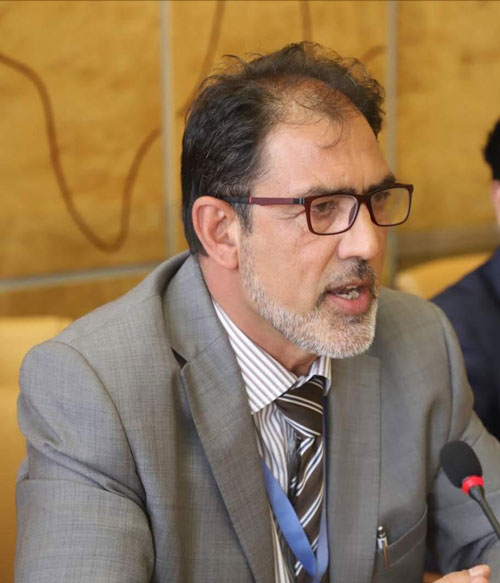The Chairman of Kashmir Institute of International Relations, Altaf Hussain Wani, has conveyed his serious concerns to United States President Joe Bi-den and other officials of the administration about Indian premier Narendra Modi’s upcoming visit to the US.
Altaf Hussain Wani in a joint communique ad-dressed to the US president, Congressmen, Senators and top officials of the state department said, “Before rolling out a red carpet for the Indian premier, they should take into account the fact that Modi is the man who is censored as a “Hero of hatred and killer of Kashmiris.”
“Modi, a longtime Hindu nationalist, is the per-son who for nearly a decade was prohibited from setting foot on US soil because of his role in the deadly violence in Gujrat that consumed thousands of innocent lives”, he said.
“It is under his rule that hate crimes against mi-norities in India have skyrocketed by 300 percent. The rising tide of anti-Muslim hate, xenophobia and Islamophobia within Indian society is the result of hate propaganda perpetrated by the leaders of his party, as well as anti-Muslim laws and policies passed or proposed in many states, including occu-pied Kashmir”, the communique stated.
Modi and his party-the BJP, he said, were di-rectly responsible for the fast deteriorating political and human rights situation in the UN-recognised disputed territory of Jammu and Kashmir.
Referring to the RSS influenced regime’s mus-cular policy on Kashmir, Wani said on 5 August 2019, the Modi government, in brazen violation of the United Nations Security Council resolutions moved a contentious bill that led to the revocation of Kashmir’s special status and dissolution of the state into two union territories.”
“Before embarking on its ambitious mission, the Modi government laid a complete siege and hapless Kashmiris who were virtually caged in their houses reeled under curfew and clampdown for more than 14 months. Essential fundamental freedoms were suspended and the social, political and economic life of the Kashmiris remained critically suppressed,” the letter further said.
Thousands of Kashmiris, he said, were arrested and faced harassment and imprisonment. “Political activists, lawyers, small business owners, journalists, students and, of course, human rights activists were roughed up and put in jails”, he said, adding that no foreign journalists were allowed into Kashmir by the Indian government.
“Sadly, the reckless totalitarian decision to strip Kashmiris of their rights and rob them of their iden-tity, was characterized by Modi and his party as the correction of a “historical blunder”, Wani said.
Reminding the American president of his coun-try’s deep commitment to protect the human rights of all people enshrined in the Universal Declaration of Human Rights and other human rights treaties, Wani said, “Human rights issue is at least one thing that does not divide us politically. It does not matter where in the world the human rights abuses are taking place or who is being abused, we must stand up for human rights and for the rule of law”.
Since US foreign policy puts the rule of law, democracy and human rights at the very heart of the global agenda, Wani expressed the hope that the present US administration and political parties from both sides of the aisle would apply same principles when it comes to the issue of Jammu and Kashmir.
He hoped that the US, which has time and again raised the issue of human rights violations in the Indian-held territory of Jammu and Kashmir, will not shy away from raising issues of serious concern with the Indian prime minister during his upcoming visit to the United States.
“We strongly believe that everyone everywhere should enjoy equal rights and protection under the law and any allegations of human rights violations must be investigated promptly, thoroughly and transparently”, he added.
The situation in Kashmir elicits strong feelings and we sincerely believe that the US that has a great track record of championing human rights would uphold its proud legacy and speak up vociferously in defence of the human rights of the people of Kashmir.—KMS










